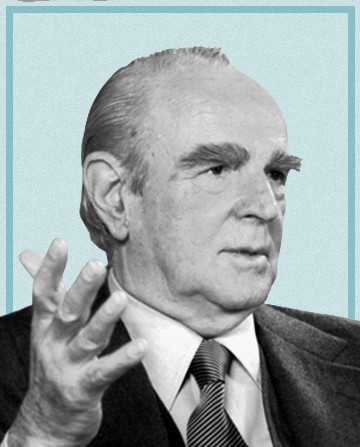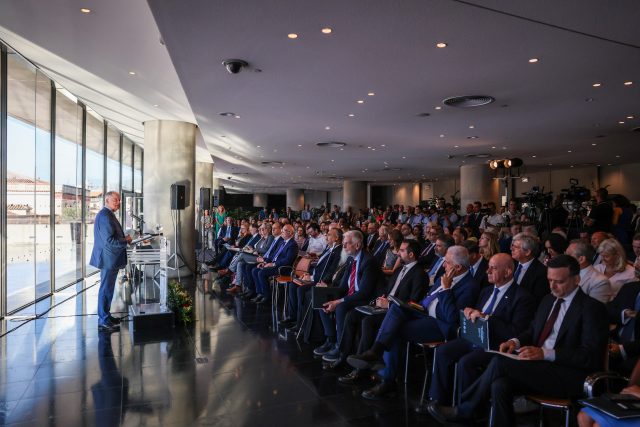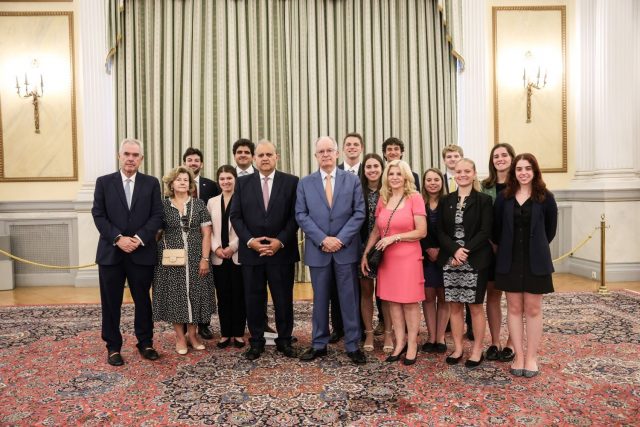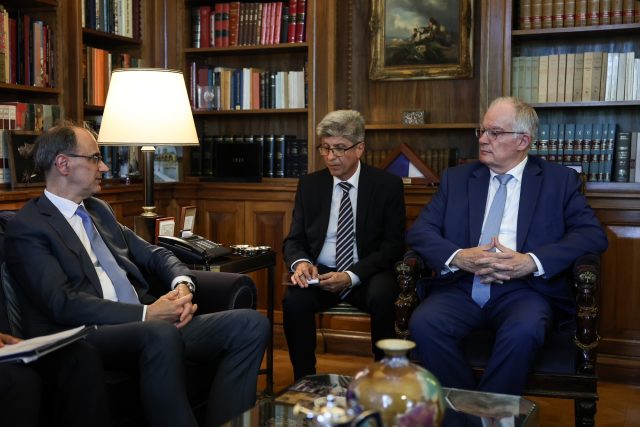KONSTANTINOS KARAMANLIS

Konstantinos Karamanlis
(1980-1985, 1990-1995)
Biography
Konstantinos Karamanlis was born in the village of Proti (near Serres, Macedonia, which was then under Turkish rule) in 1907. His father, a primary- school teacher, had played an active role in the national struggle of Macedonia. Karamanlis studied law at Athens University and, after graduating, practiced law in Serres from 1930.
Political Course
He was elected Member of Parliament for the first time in 1935, representing Serres for the Popular Party. In total, he was elected to the Greek Parliament twelve times in his political career for the Popular Party, Greek Rally, the National Radical Union and the New Democracy Party, successively. The latter two parties were founded by him in 1956 and 1974 respectively. Between 1946 and 1955 he served as Minister of Labour, Transport, Social Welfare, National Defence and, finally, Public Works.
In October 1955 he succeeded Alexander Papagos as Prime Minister and held office, after winning three elections, until June 1963, when he submitted his resignation because of a dispute with King Paul. He then went into self-imposed exile abroad, remaining there for eleven years, occasionally expressing his views on the need for the restoration of democratic institutions. He returned to Greece when the military dictatorship collapsed on the night of 24 July 1974 and formed, under his leadership, the National Unity Government. This dealt effectively both with the need for the immediate restoration of a democratic system of government and with the national crisis caused by the Turkish invasion of Cyprus. He went on to win two successive elections in 1974 and in 1977, remaining in power until his resignation from active politics in 1980.
Milestones
Konstantinos Karamanlis was twice elected President of the Republic, on 5 May 1980 and on 4 May 1990.
In 1995 he retired from public affairs, having completed 60 years in politics. During this time he served eight years as a Minister, fourteen years as Prime Minister and ten years as President of the Republic. Between 1955 and 1963 he laid the foundations for the economic reconstruction of the country. During his office as Prime Minister, between 1974 and 1980, he firmly established a workable system of constitutional democracy and ensured the country’s accession into the European Economic Community. As President of the Republic, Karamanlis consolidated the democratic regime, contributed to the strengthening of national unity and raised the country’s international prestige.
He received many European awards, the Charlemagne in 1978 and the Schumann in 1980, the gold medal of the European Parliament in 1983 and the highest medal of the University of Paris in 1983 for his commitment to the idea of a united Europe and his tireless efforts to ensure Greece’s accession into this union. He was also awarded the gold medal of the Onassis Foundation in 1983 for his contribution to the restoration of democracy, his success in integrating Greece into the European Economic Community, his vision for the rebirth of the Olympic idea and his efforts to consolidate peace in the Balkans.
Konstantinos Karamanlis died on 23 April 1998.




